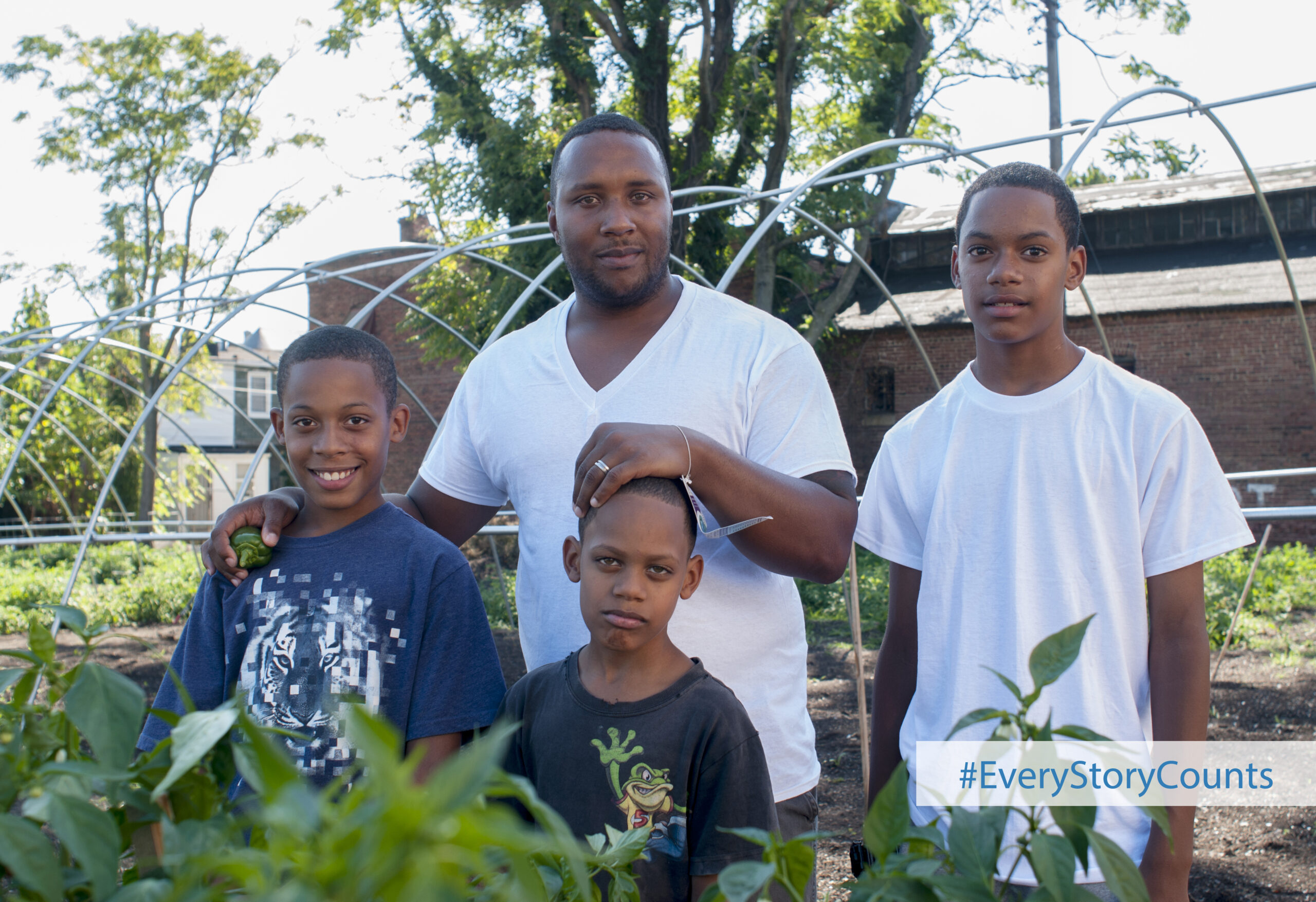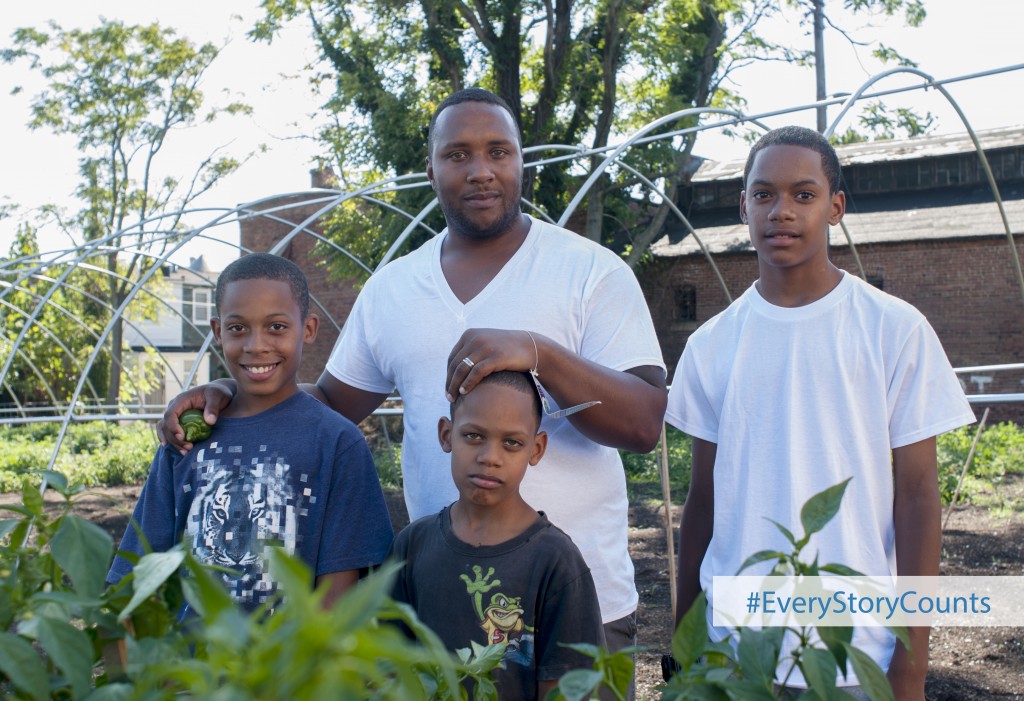Are you like Earl?
Do you want to bring healthy food to your community? Growing a garden or starting a farm doesn’t just increase access to fresh food; it brings people closer and strengthens neighborhoods by putting vacant land to good use. Baltimore Office of Sustainability and our network of partner organizations offer a wide range of resources and opportunities to help you get started … (know an organization or project you think should be included? Let us know.) (Photo by New Lens Productions.)
Office of Sustainability + Other City & State Agencies
Sustainability Plan Update — Have your say in the future of how Baltimore does sustainability. Let us know the change you want to see and the part you want to play by participating in our community-led process to rewrite The Plan. From green energy to green spaces to gardens and beyond, you can make your priorities known and your voice heard.
Current Plan — See how the current plan empowers community voices and the progress we’ve made as a city in our annual sustainability plan reports.
The Growing Green Initiative is a City-led effort to turn vacant lots and empty spaces into green areas and gardens. The Initiative aims to create jobs while increasing access to locally grown, healthy foods in Baltimore’s food deserts.
The Baltimore Food Policy Initiative was founded in 2010 to increase access to healthy food and improve health outcomes.
Baltimarket’s Baltimore City Healthy Eating Map helps Baltimore residents find sources for healthy food in their neighborhoods, including supermarkets, farmer’s markets, community gardens, and cooking classes.
Neighborhood Food Advocates, a program of the Baltimore City Health Department, aims to increase food equity by providing Baltimore residents with resources to organize to create change, developing neighborhood and community food groups, and increasing the availability of healthy food outlets in Baltimore.
Women, Infants and Children (WIC) offers nutrition education and counseling, as well as vouchers for free nutritious food for pregnant women, young children, and their mothers.
The Supplemental Nutrition Assistance Program (SNAP) helps low-income households buy the food they need.
Baltimore Housing’s Adopt A Lot program allows residents to take ownership over a vacant lot and turn it into a green space or community garden.
Urban Farming
Whitelock Farm is an active urban farm, once a vacant lot, committed to increasing access to healthy food. They also offer farm-based learning programs, including gardening and cooking classes for children and adults.
Real Food Farm works toward improving access to healthy food by bringing fresh produce to underserved communities. They also offer experience-based education with the aim of developing a sustainable, environmentally responsible local agriculture sector.
Baltimore Free Farm is a collective of activists and gardeners working to increase access to healthy food using a consensus-based decision process. They coordinate a weekly Food Rescue Day on Wednesdays to combat food waste, collecting and redistributing up to 500 pounds of recently expired dry goods, bread, and produce.
Farm Alliance of Baltimore is a collective of urban farms working to increase the viability of urban farming and improve access to urban grown foods.
Food Distribution
Gather Baltimore’s volunteer-based Blue Bags program collects surplus produce for redistribution to Baltimore’s underserved citizens. The bags, available for pickup at Mill Valley General Warehouse from Thursday-Sunday, offer a week’s worth of healthy food for $7.
Fresh At The Avenue offers fresh fruits and vegetables and Gather bags every Saturday from 9 a.m. to 3 p.m. at Avenue Market.
Maryland Food Bank is a nonprofit hunger-relief organization that distributes more than 120,000 meals per day through an extensive network of soup kitchens, pantries and schools.
Education
Great Kids Farm is a living, working farm that educates students of all ages about healthy eating, sustainable agriculture and the natural sciences.
Baltimore Urban Gardening with Students After School (BUGS), a Living Classrooms after-school and summer program, empowers and inspires students through gardening, cooking, movement, and entrepreneurship activities.
The Maryland Master Gardener Program is a volunteer education program from University of Maryland Extension for people who want to create sustainable gardens and landscapes and protect and improve natural resources.
Community Resources
Community Greening Resource Network is an annual membership program that offers long-term gardening support for individuals and groups working to improve communities with green spaces.
Baltimore Green Space partners with communities to preserve and support community gardens and other green spaces managed by residents.
The Baltimore Orchard Project strengthens communities by planting orchards and educating neighbors on how to best care for them.


